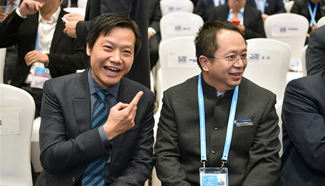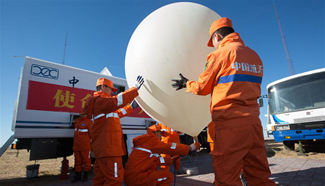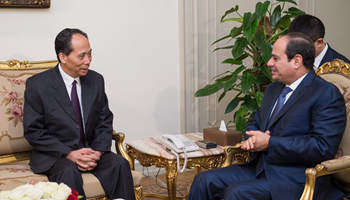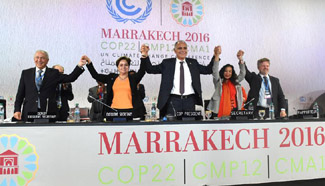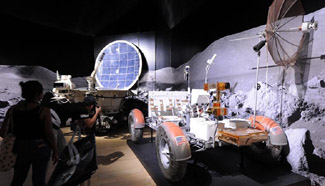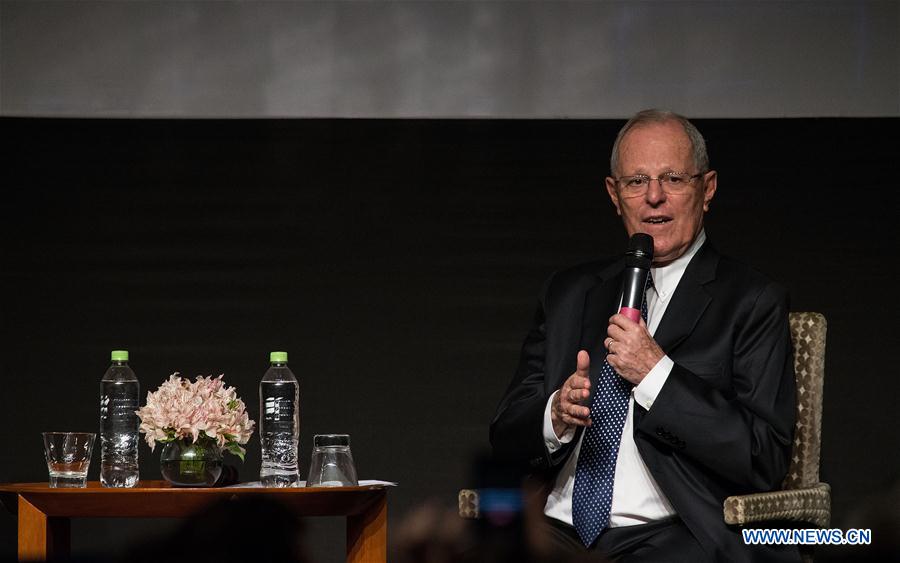
Peruvian President Pedro Pablo Kuczynski addresses the closing ceremony of the APEC Small and Medium Enterprises (SME) Summit in Lima, capital of Peru, on Nov. 17, 2016. (Xinhua/Li Ming)
LIMA, Nov. 18 (Xinhua) -- The upcoming Asia-Pacific Economic Cooperation (APEC) Economic Leaders' meeting is expected to focus on the establishment of a free-trade area in the region, as well as the role of the China-proposed Belt and Road Initiative.
The 24th APEC Economic Leaders' Meeting will kick off in the Peruvian capital of Lima on Saturday, with the theme of "Quality Growth and Human Development."
At the meeting, APEC member economies will seek to make decisions to facilitate trade and investment and consolidate liberalization policies.
FTAAP STRATEGIC STUDY TO BE APPROVED
The idea of a Free Trade Area of the Asia-Pacific (FTAAP) was first raised during the 2006 APEC Economic Leaders' Meeting in Hanoi, Vietnam.
During the 2014 APEC meeting in Beijing, APEC member economies pushed forward the process of FTAAP by sketching out a roadmap for it.
Now, the Beijing consensus is becoming a reality. A collective strategic study on issues related to the realization of FTAAP has been completed and the final version of the study along with recommendations will be presented to leaders at the Lima meeting.
Juan Carlos Capunay, Peru's ambassador to China, said the Asia-Pacific has become divided in current trade talks, leaving the goal of trade and investment liberalization in the region beyond hope.
APEC should build a free trade area that will cover all its members and coordinate economic development in the Asia-Pacific, he noted.
Julio Chan Sanchez, Peru's general coordinator of APEC affairs, said China will play a key role in facilitating FTAAP at the Lima meeting.
At the 2014 APEC meeting in Beijing, he said, China played an essential role in furthering the goal of creating a free trade zone in the Asia-Pacific.
"China's economy is progressively larger, more important and more relevant for the rest of the world, for international trade and for the global economic system," he said. "China is going to have an important role, and is going to continue to have an increasingly important role."
Echoing Chan Sanchez, Raul Salazar, APEC affairs director at the Peruvian Foreign Ministry, said the upcoming APEC meeting may well approve the strategic study for FTAAP.
"We have the obligation to continue our central topic, which is the approval of the collective strategic study, which was required by the roadmap established in Beijing in 2014. It is the hope that this year the leaders will approve the study as a step forward toward beginning negotiations for FTAAP," he said.
Salazar also praised China's contribution to pushing the idea of a free trade area in the Asia-Pacific.
"This step taken in Beijing ... has forced all the members to face the reality that this is necessary for a number of reasons. Peru holds the position that we need an Asia-Pacific free trade area. It would allow for APEC's work to be deepened and would see free trade agreements proliferate," he said.
QUALITY GROWTH, HUMAN DEVELOPMENT
In the context of sluggish growth in the Asia-Pacific and the world at large, the Lima meeting has set its theme for quality growth and human development.
Analysts see regional economic integration as the core agenda of the meeting, saying the theme shows an idea for inclusive development.
The meeting will be a good chance to discuss sustainable development, said Peruvian Second Vice President Mercedes Araoz.
"The agenda therefore covers all topics ranging from food security, human capital, and better integration," she added.
Ignacio Martinez Cortes, a professor of international relations at the National Autonomous University of Mexico, said that the meeting will be crucial for boosting the world economy through political agreements, and that China will play a prominent role.
Reducing non-tariff measures and rejecting protectionism will map the course on finance and trade for APEC member economies, he said.
Another important issue will be small and medium-sized enterprises.
"I believe they can strengthen their role as new engines of the economy, if favorable conditions are created for them," said Cortes.
The APEC region, home to around 2.8 billion people, represented 57 percent of the world's GDP and 49 percent of global trade in 2014. The quality growth of the regional economy will undoubtedly inject fresh momentum into the global economy.
PROMOTING CROSS-PACIFIC CONNECTIVITY
During an APEC finance ministers' meeting in Lima last month, China's Assistant Finance Minister Dai Bohua pointed out that despite its slow growth, the Asia-Pacific is still one of the most dynamic regions that have a great potential for development.
Next, he said, APEC member economies should spur potential growth through the implementation of structural reforms, so as to promote inclusive growth and sustainable development.
At the same time, they should boost connectivity and create a sound environment for investment, and overcome bottlenecks such as poor infrastructure and other problems thwarting economic development, he noted.
Capunay said that within the framework of APEC, China and Latin American countries can continue to discuss and cooperate in such areas as trade facilitation and the establishment of FTAAP.
He also voiced the hope that with the help of the Belt and Road Initiative, Peru will strengthen trade and economic cooperation with China and other Asian countries.
The initiative, which comprises the Silk Road Economic Belt and the 21st Century Maritime Silk Road, aspires to build a trade and infrastructure network connecting Asia with Europe and Africa along the ancient Silk Road routes.
The Belt and Road Initiative, which has charted a course for open and inclusive development, will not only promote connectivity, but also play an important role in boosting investment, trade and industrial cooperation among countries and regions.
Salazar said China has made great efforts to build a "much stronger, more consistent and better structured relationship" with Latin America.` "I think the stimulus the Chinese government is carrying out is helping, such as the Trans-Oceanic Railway," he said.
The coast-to-coast railway, one of the main cooperation projects between China and Latin America, is expected to create a corridor connecting the Pacific and the Atlantic.
"The planning is being done correctly," Salazar said, adding that this physical integration would catch up with other integration policies within the Asia-Pacific region.





